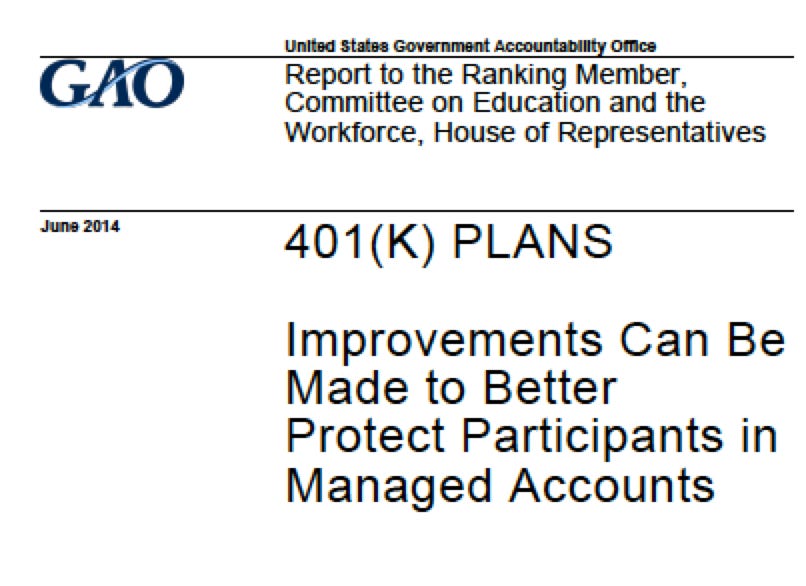Managed Accounts - Why The Lack of Competition?

I continue to do consulting work for non-ERISA government plans (403(b) and 457(b)) and one area of these plans that continues to bother me is Managed Accounts. Managed Accounts are also available and on the rise in 401(k) plans and enjoy Qualified Default Investment Alternative status with the Department of Labor. Yet, there is very little competition in this field.
The GAO conducted a study which was released in 2014 (find it here) which stated that only eight providers accounted for 95% of the managed account business. My experience is that Financial Engines and Morningstar/Ibbotson are the dominant providers and according to a Pensions and Investment article they are. Financial Engines accounts for nearly 60% of all managed accounts with Morningstar at close to 22%. Two providers make up 82% of the market.
There are over 9,000 mutual funds that we could invest in here in the United States, there are hundreds of thousands of financial advisors and depending on with whom you talk to, nearly 16,000 Registered Investment Advisors (of which managed account providers fall). Could you imagine if just two RIAs held 80% of the assets? What if just two mutual fund companies held 80% of the assets? If Vanguard was one...perhaps I'd be ok with that!
Financial Engines is the dominant player, partially because they had the first mover advantage, however one has to wonder whether that is the primary reason today. Recently, Voya Financial was sued by a participant in the Nestle 401(k) plan alleging that:
Voya devised an arrangement with Financial Engines in which it collected excessive fees for investment-advice services, and concealed “the true nature of the arrangement.”
Has Financial Engines created a situation where record-keepers have no incentive to open up their system to other managed account providers? Perhaps this lawsuit will shed some light on how record-keepers work with managed account providers.
Managed accounts, a service that is simply money management (with options for additional planning) is not treated like other money management services. Most defined contribution plans these days are open architecture, that is, they offer just about any mutual fund you could want. This allows plan fiduciaries to properly monitor their lineups and make necessary changes with little conflicts of interest. The same cannot be said for managed accounts.
Managed accounts are incredibly difficult to monitor and if you want to replace the provider there is no way to conduct an open request for proposal process as the record-keeper determines who can be on their platform and most allow only one or just a handful. Managed accounts represent a revenue stream to record-keepers which is a major conflict of interest.
Managed accounts need to evolve like mutual funds, they should be interchangeable and have a process to monitor that is transparent and robust. Which brings me to my next point.
There is no Morningstar for managed accounts.
Morningstar built an incredible business redistributing mutual fund company data in a manner that was useful. No such service exists for managed accounts and Morningstar is not in a position to do so given that they are one of the providers.
While managed account providers do more than just manage money, their primary role is to do just that. Yet, there are only two real options for the vast majority of DC plans to choose from? Something isn't right in this market. I've spent a lot of time analyzing these programs and the providers know they have the power to do whatever they want because there are no other options. But WHY are there no or few other options?
This question needs to be answered. Managed Accounts are not smart phones, there is no reason that two providers should be dominating this market.
For the record, I believe managed accounts can be a valuable service if done right, monitored properly and priced appropriately. I'm confident this can become a reality.
Scott Dauenhauer, CFP, MPAS, AIF
Are you 403(b) Wise? 403bwise.org is the place on the internet to learn, advocate and build community.

